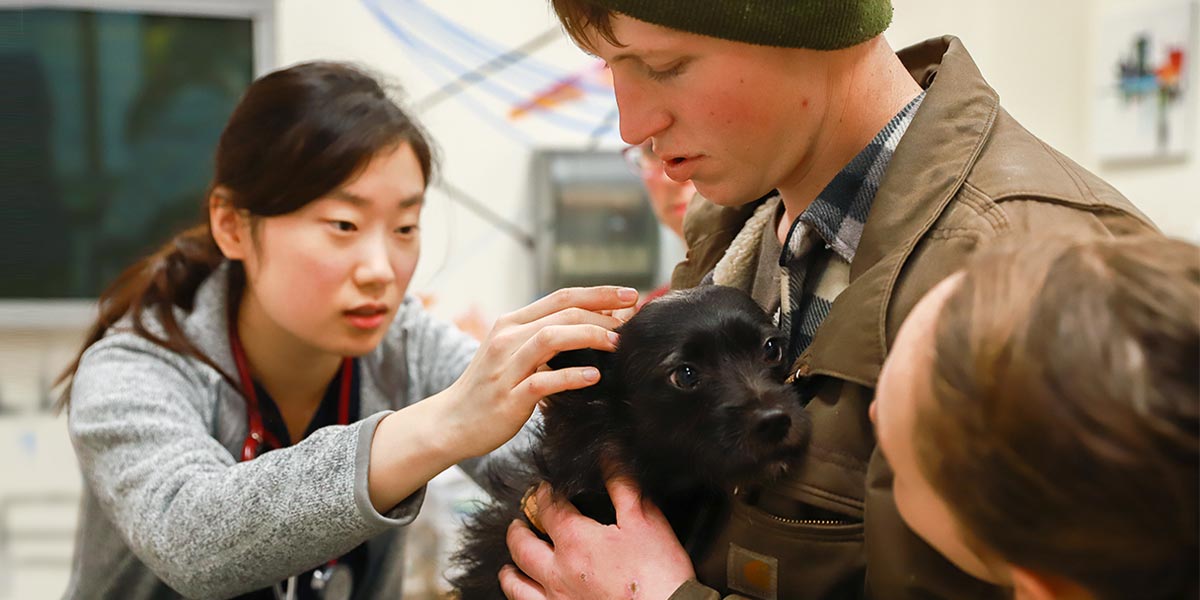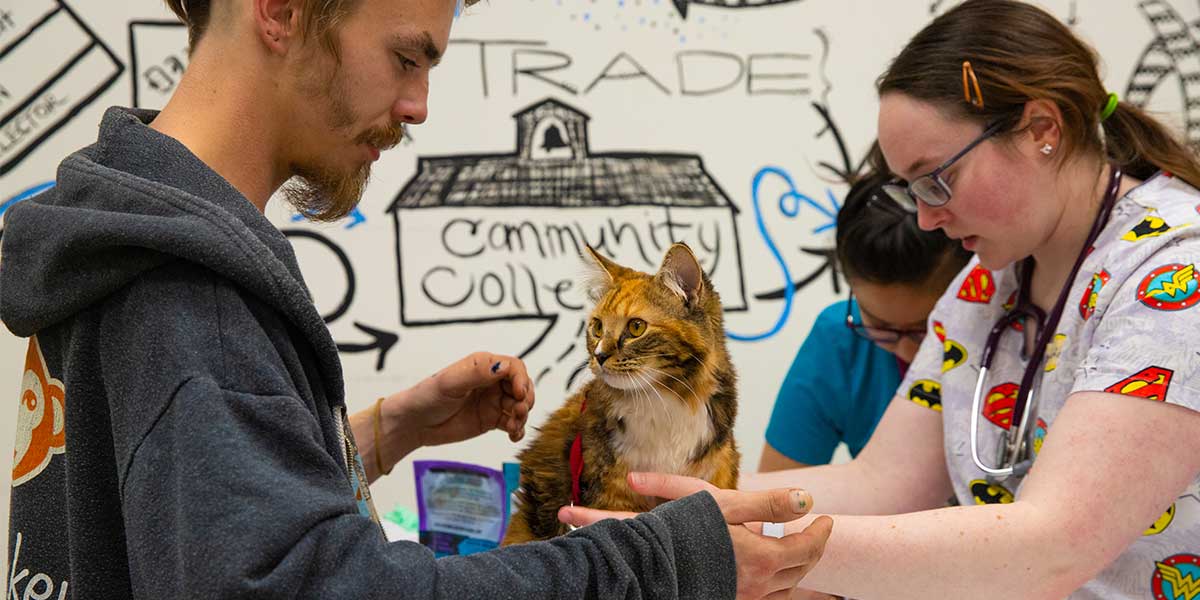
Rivals in the sports arena, the state’s two largest public universities have teamed up off the field to improve the health of young adults experiencing homelessness – and their pets.
The University of Washington and Washington State University are working with New Horizons Ministries and Neighborcare Health to provide health care and veterinary care to this vulnerable population. Key educational partners include the UW School of Public Health, WSU’s College of Veterinary Medicine and UW Medicine.
Many people experiencing homelessness have pets, but the animals can be a barrier to health care. Owners may not want to leave their dogs or cats while visiting a clinic. Enter the new One Health Clinic, which welcomes two- and four-legged creatures at the same time.
“Our joint human health/veterinary care model allows us to treat humans and their pets as a unit, since there are so many overlapping health issues,” said Peter Rabinowitz, director of UW’s Center for One Health Research. Rabinowitz is a professor of environmental & occupational health sciences, family medicine and global health.
“The aim of this project is to determine the best way to integrate human and animal medical care for people facing homelessness and their pets and to leverage positive aspects of the human animal bond.”
The project grew out of a pilot grant from the UW’s Population Health Initiative. Rabinowitz reached out across the state to enthusiastic colleagues at WSU. The partnership comes amid a statewide campaign by the UW and WSU to promote the affordability and impact of public higher education. In the One Health Clinic, WSU veterinary students work together with UW Health Sciences students from University District Street Medicine, a student-run volunteer organization.
“For those people experiencing homelessness, companion animals can provide comfort and friendship,” said Bryan K. Slinker, dean of the College of Veterinary Medicine. “At the One Health Clinic, veterinary and human health students work side by side with their preceptors and community providers to serve these vulnerable animal and human pairs in a truly interprofessional model of care.”
The One Health Clinic held several pilot clinics last year and is now open up to two nights a month at New Horizons, a shelter and service provider for young adults youth ages 18-25, located in Belltown. Neighborcare Health, which has operated a health clinic for youth and young adults experiencing homelessness since 1993, is the human medical provider at the One Health Clinic. The clinic can serve up to seven client-pairs a night.

“When we can treat a health problem in the pets, we remove that as a stress point while these young people are working to transition from homelessness," said Dr. Katie Kuehl, the lead WSU Veterinary Medical Director for the One Health Clinic. "This helps them feel safe in accessing care for their own health needs.”
One goal of the project is to research the impact that having a companion animal has on people facing homelessness and to provide research-based recommendations for combined health care. The Center for One Health Research, based in the School of Public Health’s Department of Environmental & Occupational Health Sciences, explores linkages among humans, animals and their shared environment.
The One Health clinic could eventually expand to Ballard and could include a mobile clinic, but Rabinowitz says sustainable funding is needed.
To support the One Health Clinic, visit https://deohs.washington.edu/cohr/donate.
